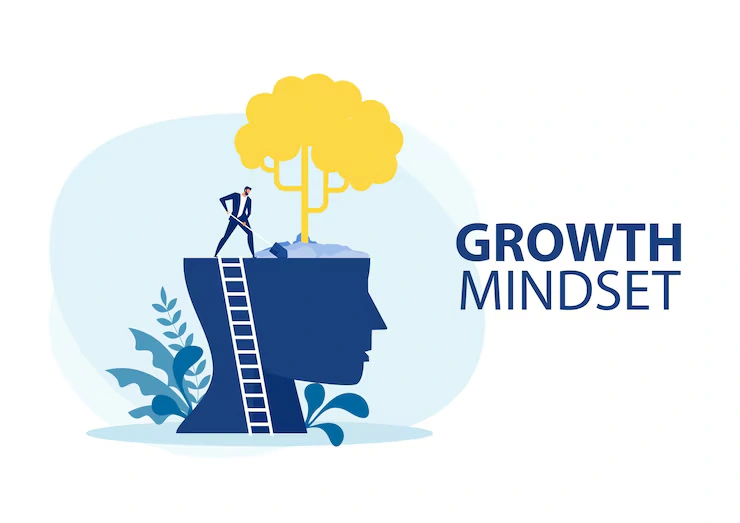
Cultivating a Growth Mindset: Resilience Strategies for the Future
In today’s rapidly evolving world, where technology and society are constantly changing, success depends much more on mindset than just raw skill or talent. Cultivating a Growth Mindset is one of the most important tools a person can develop to thrive. A growth mindset means believing that abilities, intelligence, and talents can be developed over time with effort, learning, and persistence. People who have a growth mind see challenges not as obstacles but as important opportunities to improve and grow.
In 2025 and beyond, developing this type of mindset will be more essential than ever for long-term resilience, adaptability, and success. Those who embrace change, learn from mistakes, and keep evolving will be best prepared to meet future demands in both their personal and professional lives.
Why Growth Mindset Matters
The future is full of uncertainty, with rapid advancements in artificial intelligence, automation, and major changes in how people work and live. This unpredictability makes cultivating a growth mindset extremely important. A growth mindset encourages individuals to stay open to new ideas, remain flexible when facing change, and keep a positive outlook even during times of failure or uncertainty. When setbacks occur, it is often the mindset that determines whether someone gives up or finds the strength to bounce back stronger.

Growth Mindset in Action
People who possess a strong growth mindset tend to embrace learning curves and understand that making mistakes is a natural part of growth. They welcome Constructive Feedback as an essential tool for self-improvement and stay motivated even when progress feels slow or challenging. They believe that consistent effort and practice lead to mastery rather than relying solely on natural talent. Additionally, they adapt their strategies until they discover effective solutions. This way of thinking builds emotional and mental resilience, empowering individuals to keep moving forward even when others lose hope or motivation.
Key Traits of a Growth Mindset
A growth mindset is not just about staying positive; it is a structured, intentional way of approaching life’s challenges and opportunities. Here are the essential traits that people with a growth approach work to develop and strengthen over time:
- Curiosity: Always eager to ask questions and discover new things, never satisfied with the status quo
- Persistence: Determined to push through obstacles and failures without losing hope or giving up
- Optimism: Confident that consistent effort and learning will lead to progress, even if it takes time
- Self-awareness: Recognizing one’s own limiting beliefs or negative thoughts and consciously working to transform them
- Adaptability: Willing to change direction, learn new skills, or adopt different perspectives when necessary
By focusing on these key qualities, Individuals Train their minds to think long-term, stay patient, and see failure as a necessary part of success rather than a permanent roadblock.
Growth Mindset Traits, Challenges & Strategies
| Trait | Common Challenge Faced | Strategy to Overcome |
| Curiosity | Fear of asking “wrong” questions | Practice asking open-ended questions regularly; research widely to build confidence |
| Persistence | Losing motivation after failures | Break larger goals into small, manageable steps; celebrate small wins to stay motivated |
| Adaptability | Resistance to change | Start by making small changes and build comfort gradually with new situations |
| Optimism | Doubting the outcome or future | Keep a gratitude journal; celebrate even the smallest victories to build positive outlook |
| Self-Awareness | Ignoring or suppressing inner doubts | Maintain a mindset journal; practice mindfulness and self-reflection regularly |
These strategies, when practiced consistently, help reinforce a strong growth mindset and build lasting resilience that will serve individuals well in many areas of life.

Building a Growth Mindset Daily
Developing a growth mindset is not a one-time event but a daily habit and practice. Like building any muscle, strengthening your growth approach requires time, consistent effort, and awareness. Here are some practical ways to build this mindset every day:
- Begin each day with a positive affirmation, quote, or intention focused on learning and growth
- Reflect regularly on daily progress by journaling or discussing your experiences
- Challenge yourself to learn something new every day, no matter how small
- Actively seek constructive feedback and use it as a tool for continuous improvement
- Replace fixed phrases like “I can’t do this” with “I can’t do this yet” to encourage perseverance
- Surround yourself with people who inspire and encourage a growth mindset
Even dedicating just five minutes a day to mindfulness, reflection, or journaling can compound over time and create a powerful shift in how you approach challenges and opportunities.
Growth Mindset at Work and Home
Whether in your professional career or personal life, cultivating a growth mindset brings profound benefits. At work, it fosters creativity, innovation, and stronger teamwork by making people more open to collaboration, less defensive about feedback, and more willing to take risks or try new approaches. Leaders who embody a growth approach inspire their teams to push boundaries and keep improving. At home, this Mindset Encourages Patience, empathy, and better communication with family and friends.
Families who adopt a growth approach support each other through tough times, see challenges as opportunities to learn, and celebrate progress together. For example, teams that view failure as useful feedback instead of defeat, and leaders who promote experimentation without fear of mistakes, create environments that strengthen relationships and build resilience in both work and home life.
How to Develop a Growth Mindset
Developing a growth mindset starts with becoming aware of your own fixed thinking patterns. Notice moments when you feel stuck, frustrated, or self-critical. Ask yourself what limiting belief is holding you back. Then challenge that belief by reframing it in a growth-oriented way.
Some practical steps include:
- Seeing mistakes as important lessons rather than failures
- Praising effort and process rather than just results
- Reading books, listening to podcasts, or attending workshops on growth approach
- Setting goals focused on learning and development instead of only performance
- Practicing mindfulness or meditation to manage negative self-talk
These tools and habits gradually shift your mindset and encourage lasting change. Over time, this leads to greater emotional flexibility, mental strength, and resilience.

Conclusion
The growth mindset is not just a temporary trend or buzzword, it is a crucial, lifelong tool for navigating the complexities of life and work. It helps people stay focused, overcome setbacks, and embrace change with courage and creativity. In 2025 and beyond, individuals who cultivate a growth approach will be better equipped to face uncertainty, build meaningful relationships, and achieve their personal and professional goals. Whether you are developing a career, managing family responsibilities, or striving for self-improvement, adopting a growth mindset can transform your experience and open new doors. Start today by choosing one new growth-oriented thought or habit, and watch your future unfold with new possibilities.
FAQs
What is a growth mindset and why is it important?
A growth mindset is the belief that abilities and intelligence can be developed with effort. It is important because it helps you adapt, learn, and overcome challenges.
How can a growth mindset improve resilience?
It encourages seeing setbacks as learning opportunities and motivates you to keep trying, which strengthens emotional resilience.
What are some key traits of a growth mindset?
Curiosity, persistence, optimism, self-awareness, and adaptability are key traits that help maintain a growth approach.
How do I start developing a growth approach daily?
Start by setting small learning goals, seeking feedback, reflecting on progress, and replacing fixed beliefs with growth-focused thoughts.
Can a growth mindset help in both personal and professional life?
Yes, it fosters innovation and teamwork at work, and patience and empathy in personal relationships, improving overall life quality.










